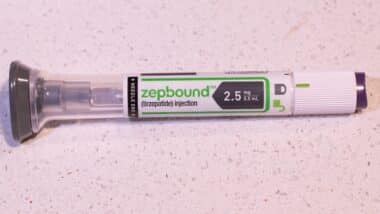Ohio plaintiff Victoria K. has filed a Benicar lawsuit against the Japanese pharmaceutical giant, Daiichi Sankyo, for the injuries she allegedly suffered from their blood pressure medication, Benicar.
Victoria claims in her Benicar lawsuit that as a direct result of using blood pressure drug, she suffered multiple gastrointestinal symptoms like sprue-like enteropathy, which is similar to celiac disease.
Like many patients in America, Victoria had been suffering from hypertension and had been prescribed Benicar in an attempt to lower her blood pressure. If not treated, high blood pressure can lead to a variety of complications like heart attack and anxiety-related attacks.
During the entire time she was taking Benicar, Victoria had followed all prescription instructions and had followed the advice of her physician. Unfortunately, this did not prevent her from suffering a variety of gastrointestinal injuries like sprue-like enteropathy, lymphocytic colitis, microscopic colitis, collagenous colitis, intestinal malabsorption, and diarrhea.
The celiac disease-like symptoms caused Victoria to also suffer rapid weight loss, nausea, vomiting, malnutrition, dehydration, and acute renal failure, according to the Benicar lawsuit.
Due to these Benicar side effects, Victoria was hospitalized on multiple occasions and monitored by multiple healthcare professionals. After some diagnostic testing, the plaintiff was eventually diagnosed with suffering from the adverse effects of Benicar.
Before the Food and Drug Administration, or FDA, had released its Benicar warning in July 2013, which warned doctors that Benicar could cause patients to suffer diarrhea and potentially permanent intestinal damage, Victoria’s doctors may misdiagnosed the problem due to the fact that the she was suffering similar symptoms to celiac disease. Many Benicar patients have been misdiagnosed due to this misunderstanding.
When a patient is misdiagnosed, it allows for Benicar’s side effects to persist and cause the potential intestinal damage. Even though doctors advise that these symptoms often resolve themselves if the patient discontinues Benicar, there is no guarantee it will solve all the problems.
Victoria is filing this Benicar lawsuit against Daiichi Sankyo for the injuries she suffered, claiming that they were completely avoidable and that they were not mentioned on Benicar’s warning label. According to the Benicar lawsuit, at no point before or after her Benicar prescription did the drug maker notify her of any possible side effects she could suffer from Benicar.
Victoria’s lawyers state that Daiichi Sankyo had the responsibility of warning their client and other Benicar patients of their drug’s side effects. Victoria insists that she never would have used Benicar if she had known about the possibility of chronic diarrhea and sprue-like enteropathy.
For being allegedly responsibly for manufacturing, selling, distributing, and marketing a dangerous drug, Victoria is suing Daiichi Sankyo for negligence, false advertising, concealing information, and misrepresenting a product.
The Benicar Lawsuit is Case No. 1:14-cv-02781-DAP, in the U.S. District Court for the Northern District of Ohio, Eastern Division.
Overview of Benicar Complications
Benicar was approved to be sold in the United States on June 5, 2003, to treat hypertension in adult patients. Between the years 2002 and 2008 Benicar’s manufacturing company, Daiichi Sankyo, reportedly spent approximately $1 billion to advertise Benicar on advertising in the United States.
According to experts, the company’s main marketing strategy centered around face-to-face meetings with physicians, physician meeting events, and giving out clinical samples.
This proved to be a fruitful investment for Daiichi Sankyo, as Benicar became one of the most popular blood pressure treatment choices in America. Despite the success Daiichi Sankyo has enjoyed from Benicar, this drug has recently come under fire for allegedly causing severe personal injuries like diarrhea in patients.
On July 3, 2013, the FDA issued a public warning regarding Benicar side effects, stating that it could cause intestinal problems like sprue-like enteropathy. Due to the high number of injury reports, the FDA required Daiichi Sankyo to update Benicar’s warning label to include the warning that along with additional side effects like weight loss, nausea, and possible permanent intestinal damage.
Unfortunately, this warning came too late to many patients who reportedly suffered from chronic diarrhea after ingesting Benicar. After being misdiagnosed with celiac disease, many of them reported suffering permanent intestinal damage. Many of these patients have filed legal action against Daiichi Sankyo for failing to protect them against Benicar side effects.
Do YOU have a legal claim? Fill out the form on this page now for a free, immediate, and confidential case evaluation. The attorneys who work with Top Class Actions will contact you if you qualify to let you know if an individual lawsuit or Benicar class action lawsuit is best for you. [In general, Benicar lawsuits are filed individually by each plaintiff and are not class actions.] Hurry — statutes of limitations may apply.
ATTORNEY ADVERTISING
Top Class Actions is a Proud Member of the American Bar Association
LEGAL INFORMATION IS NOT LEGAL ADVICE
Top Class Actions Legal Statement
©2008 – 2025 Top Class Actions® LLC
Various Trademarks held by their respective owners
This website is not intended for viewing or usage by European Union citizens.
Get Help – It’s Free
Join a Free Benicar Class Action Lawsuit Investigation
If you or a loved one used Benicar for at least four months and were hospitalized for severe gastrointestinal problems, you may have a legal claim. Submit your information now for a free case evaluation.
An attorney will contact you if you qualify to discuss the details of your potential case at no charge to you.
Oops! We could not locate your form.













